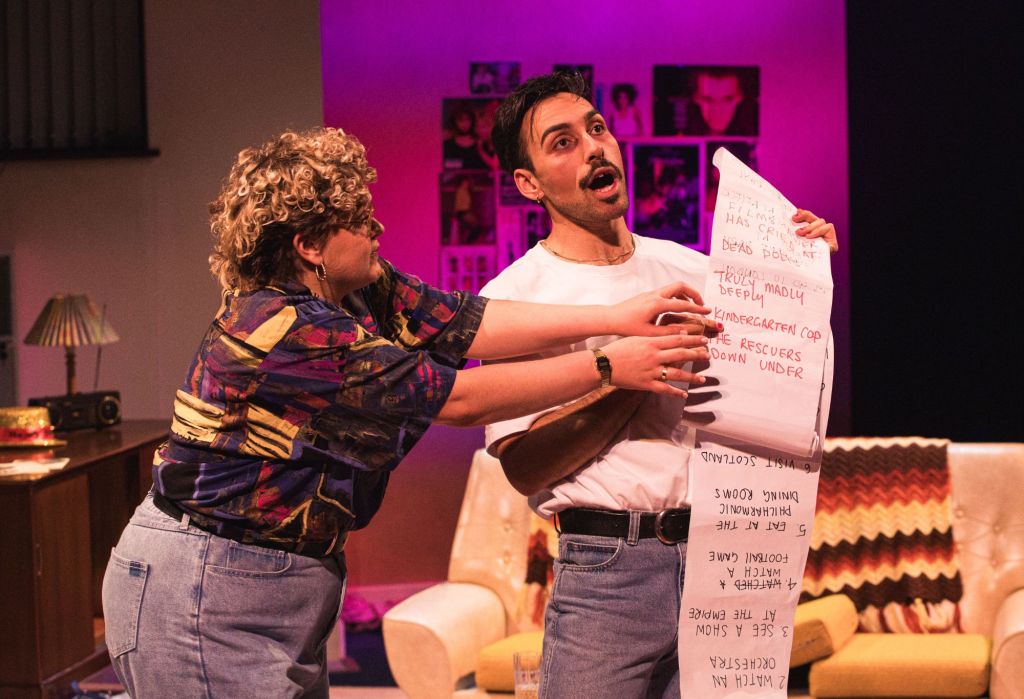
Image credit: Andrew AB Photography
Written by Tasha Dowd
Directed by Gitika Buttoo
LIVERPOOL EVERYMAN
It’s the 60th year of Liverpool Everyman and fittingly the theatre is celebrating by looking forward and showcasing new work. Tasha Dowd is a graduate of the theatre’s new writing programme for young people. Her debut play Tell Me How It Ends celebrates and commemorates a particular period of social history that has often gone under the radar in the story of the AIDS crisis. Focusing on the late 80’s and early 90’s the plays looks at the work of the lesbian community who tirelessly volunteered their time; in many instances their blood, sweat and tears to support all the men in Liverpool dying from AIDS and related illnesses.
This is a meticulously researched play that is filled with period appropriate cultural references and references local clubs in Liverpool at that time. The belting soundtrack includes Whitney Houston and The Communards and local Liverpool groups such as Echo And The Bunnymen and The Christians. Books and films are also central to the narrative as volunteer Aster attempts to connect with Marc though sharing books like Misery, The Silence of the Lambs and watching movies such as The Bodyguard together.
This two hander has Emmy Stonelake as Aster who is a lesbian supporting Marc played by Luke Sookdeo who is HIV and on AZT drug cocktails as the hospital struggle to increase his T cell count. Stonelake really shines in this role giving her character an awkward, bumbling charm and a dry, sly wit. Her initially infuriating habit of always giving away the endings of books and films becomes a poignant metaphor for what is to come as Marc’s life is cruelly cut short. Sookdeo struggles a bit in the early hospital scenes which simply require him to be weakened and warily resistant to Aster’s help. As his character gets physically stronger the Sookdeo starts to hit his stride and Marc becomes more fleshed out as the duo become firm friends.
There is a lovely choreography to the scenes as Grace Goulding makes use of every element of the clever set design by Katie Scott. There is energy and flow to scenes that move from the hospital to Aster’s flat, Marc’s B&B to the disco and the really captivating cinema scene. The story moves from the unlikely pairing sparring on a hospital ward to them making a bucket list to make the most of Marc’s remaining life. For such a young writer Tasha Dowd has a light touch and manages to avoid a mawkish drawn death scene. Aster’s big final speech is genuinely heartfelt and impassioned but risks preaching to the converted.
In recent years there has been a lot more writing about this era and it’s impact as we grappled with the horror of HIV and AIDS. This production feels like filling in another part of the story of a particular group of volunteers and the people they supported. I worked on the telephone counselling lines in Manchester and helped organise the fundraising so I remember the tears, the rage, the fear and despair and the laughter. It was an extraordinary time and should never be forgotten. Tell Me How It Ends evokes the era extremely well and is as much about learning how to live on our own terms as it is about preparing for death in a way that gives an individual some autonomy.
